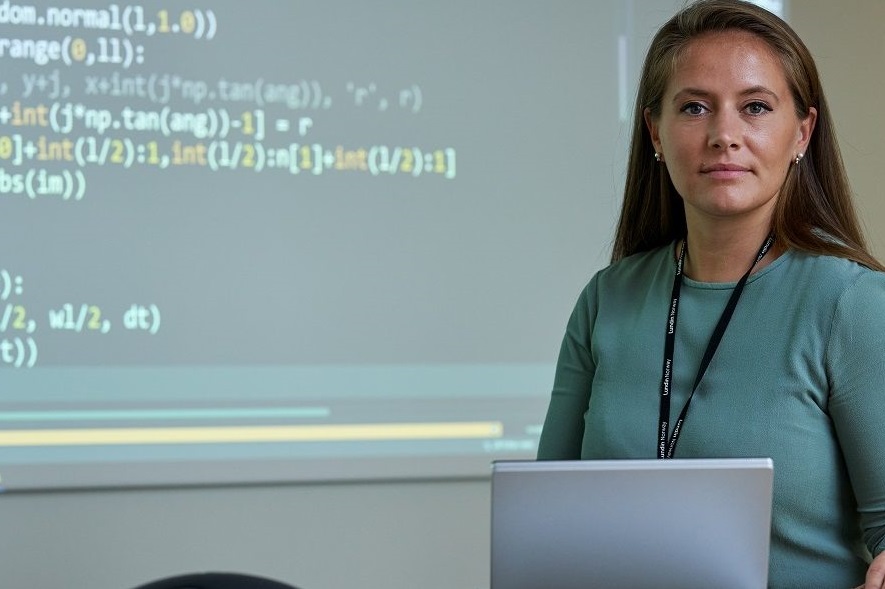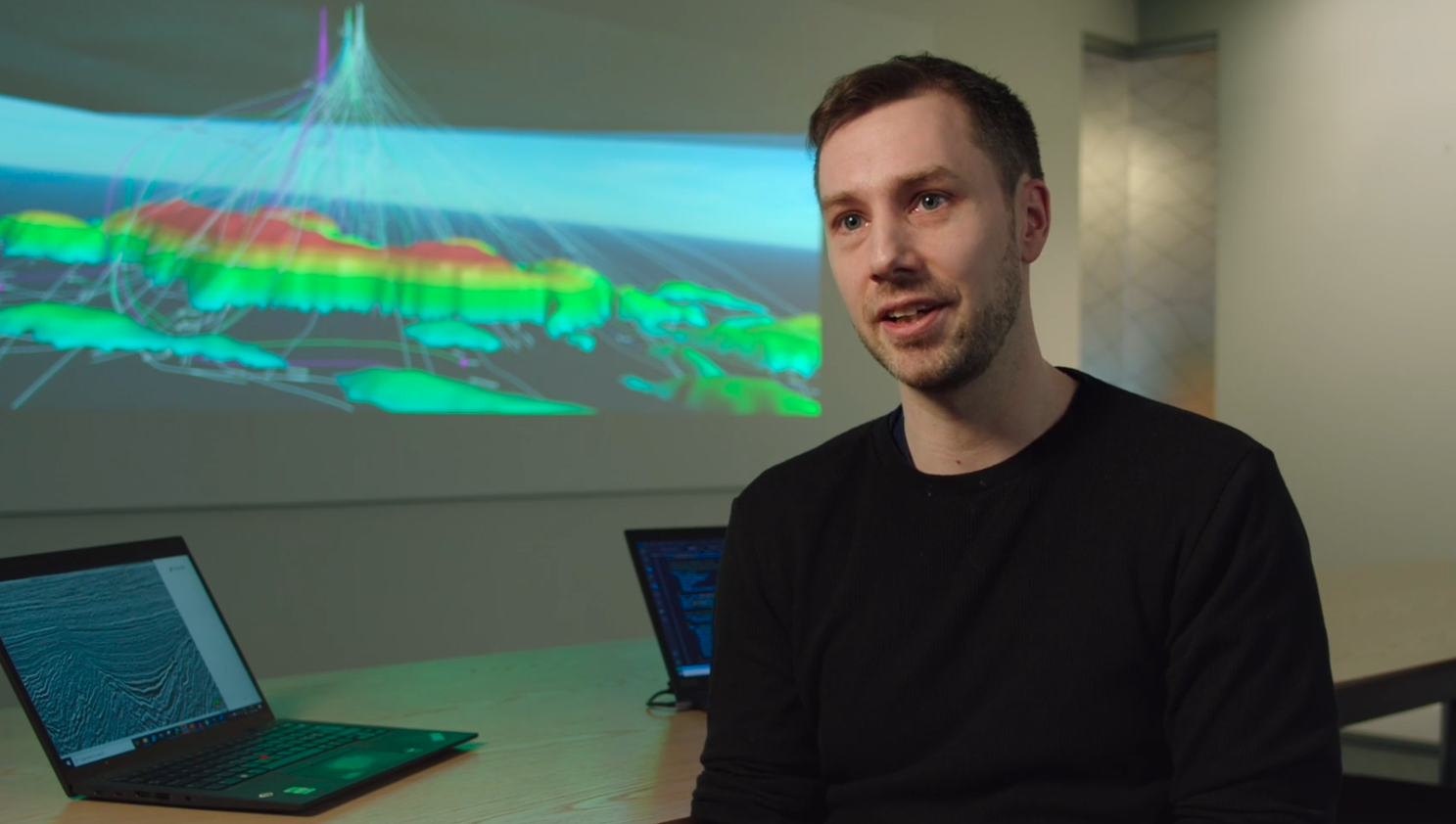Can artificial intelligence help us find oil?
A digital tool developed at Aker BP uses artificial intelligence to significantly streamline the work of exploring for oil and gas. The so-called ‘exploration robot’ does not put geologists and geophysicists out of work but helps to increase quality of the work and utilize available data in a far better way than before.
“Our principle is to use computers for what computers are good at, which is to find patterns in large multi-dimensional datasets”, says Aina Juell Bugge, Senior Data Scientist at Aker BP.
“Our goal is to use machine learning and generative AI as an aid when we interpret seismic data, by finding and flagging possible exploration targets and prospects, and to provide data-based assessments of uncertainty in interpretations as a second opinion, says Juell Bugge.
When you drill an exploration well, there are often years of work behind it, and not least enormous amounts of data. And precisely for this reason, a tool that uses generative AI will be able to contribute to a significant change in the way we work.

Exploration work starts with data. Both new data, but also historical data that may have been collected over several decades. A large proportion is seismic data collected from the area where we are exploring, but also from other parts of the continental shelf if it contributes to a better understanding. This is combined with data from well logs and core samples. When all of this put together it amounts to a scale and complexity that the human brain is unable to handle.
We have been using computers to store and process the data for decades. But with the possibilities that opens up with artificial intelligence, the contribution from computers rises to a whole new level.
“There is no risk of machines taking over the explorationists’ jobs. Quite the contrary”, says Peder Aursand. Aursand is a Subsurface Manager at Aker BP.
“With the ‘exploration robot’, we have simply created a co-pilot for the explorationists that helps free up time that was previously used for repetitive and labor-intensive tasks. This time can now be used for creative processes and better understanding of the underground. But it requires that we work in a different way, and that we have people with a slightly different type of expertise than we have had up until now”, says Aursand.
